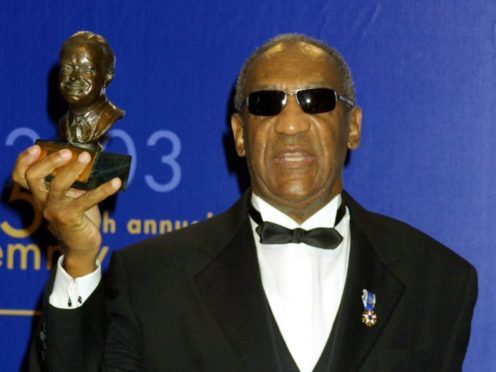Bill Cosby’s lawyers have asked the judge in his upcoming sexual assault retrial to step aside.
They argue the judge could be seen as biased because his wife is a social worker who has described herself as an “activist and advocate for assault victims”.
Cosby’s lawyers contend some of Judge Steven O’Neill’s recent pre-trial rulings could give the appearance he is being influenced by his wife’s work, particularly his decision last week to let prosecutors have up to five additional accusers give evidence when he allowed just one at the first trial.
Mr O’Neill did not immediately rule on the request.
He and his wife, Deborah, did not immediately respond to messages seeking comment.
Deborah O’Neill is a psychotherapist at the University of Pennsylvania and coordinates a team providing care, support and advocacy for student sexual assault victims.
In 2012, she wrote her doctoral dissertation on acquaintance rape, the type of assault at issue in Cosby’s criminal case.
Last year, Cosby’s lawyers said, Deborah O’Neill gave money to a group linked to an organisation that is planning a protest outside the retrial.
Cosby has pleaded not guilty to charges he drugged and molested former Temple University athletics administrator Andrea Constand at his suburban Philadelphia home in 2004.
Cosby’s first trial ended in a hung jury last year.
Seeking a new judge is the latest attempt the 80-year-old Cosby’s retooled defence team has made to push back the start of his retrial.
Mr O’Neill rejected a request last week to delay the retrial at least three months so Cosby’s lawyers, led by former Michael Jackson lawyer Tom Mesereau, could have more time to prepare for the five additional accuser witnesses.
Cosby’s wife, Camille, blasted Mr O’Neill after the first trial as “overtly arrogant and collaborating with the district attorney”, but his lawyers back then never objected to him presiding over the case.
Cosby’s lawyers argued in court papers filed on Thursday that Mr O’Neill first gave an appearance of bias at the first trial when he refused to let jurors hear from a woman who claimed Ms Constand told her she wanted to falsely accuse a famous person of sexual misconduct so she could sue and get money.
They also cited Mr O’Neill’s insistence that the retrial go on, despite telephone records, travel itineraries and other evidence showing the alleged assault could not have happened in January 2004, when Ms Constand says it did, and thus falls outside the statute of limitations.
Mr O’Neill said he would leave that for the jury to decide.
Ms Constand has agreed to be identified in reports.
